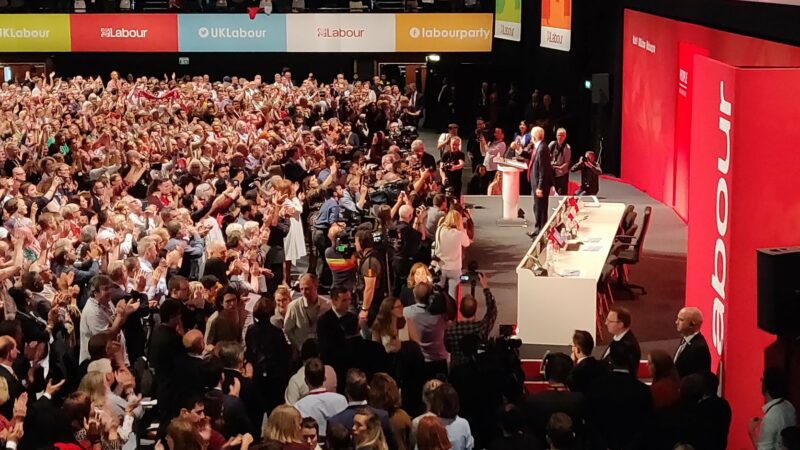
The Supreme Court has announced its ruling that Boris Johnson’s lengthy prorogation of parliament was “unlawful, void and of no effect”. The Commons will sit again from 11.30am today, and Labour and other opposition parties are set to use this time for further scrutiny of the government – and particularly its decision to shut down parliament. We’re in the same situation as before prorogation, in that Boris Johnson has neither proposed a deal to the EU nor agreed to seek an extension as per the Benn Act, which means Jeremy Corbyn’s priority is still to prevent no deal on October 31st. Labour will only back an early election and/or force a vote of no confidence once that risk is eliminated. In the meantime, we’re likely to see parliamentary procedures such as the humble address being used to hold the government to account.
Labour conference had its agenda reshuffled as a result of the Supreme Court ruling, and the leader’s address was brought forward. In one of his most confident performances as Labour leader, Corbyn delivered a speech that fit squarely into the spirit of the conference slogan ‘people before privilege’ and offered an alternative to Johnson’s populist narrative. “He thinks he’s above us all. He is part of an elite that disdains democracy,” he said of the PM, in an attempt to highlight the entitlement – rather than rebellious – aspect of the unlawful prorogation. “Johnson and his wealthy friends are not only on the side of the establishment, they are the establishment.” This battle over which party can claim to be truly ‘on the side of the people’ will likely become a key feature of the early election campaign.
Using that same anti-establishment language, Corbyn also unveiled a fresh policy, with the launch of ‘Medicines for the Many’. To combat the problem of NHS users being denied life-saving drugs due to a “system that puts profits for shareholders before people’s lives”, Labour wants to secure generic versions of patented medicines, restrict public research funding to those companies that make their medicines affordable, and – in the slightly longer term – create a publicy-owned drugs manufacturer. “We will redesign the system to serve public health – not private wealth,” the Labour leader told conference. He concluded his speech with the promise that he would be “a very different kind of Prime Minister”, and not occupy No10 out of “a sense of born-to-rule entitlement” nor “some personal power trip”.
We have heard a closing speech, and many MPs have returned to Westminster, but Labour conference hasn’t finished. Delegates will now debate composite motions on immigration and mental health, plus an emergency one on the Thomas Cook collapse, then vote on these and other motions debated yesterday. With Brexit and Green New Deal tackled, there is one last controversial, tricky-for-the-leadership proposal, and it is expected to pass. The immigration motion would apply pressure on the party to maintain and extend free movement – under any circumstances, including a Leave deal – and offer equal voting rights to all UK residents. This is regarded as crucial to the pro-Remain campaigners who lost the Brexit battle earlier in the week. It will largely be ignored amid the prorogation news and the wacky developments coming out of US politics, but this is set to be a major moment for the Labour Party.
Sign up to LabourList’s morning email for everything Labour, every weekday morning.



More from LabourList
Restoration announce recommendations for NEC candidates
‘Factionalism at the top is weakening Labour – and handing a gift to Reform’
‘Europe must stand strong on its own as US security guarantees grow conditional’